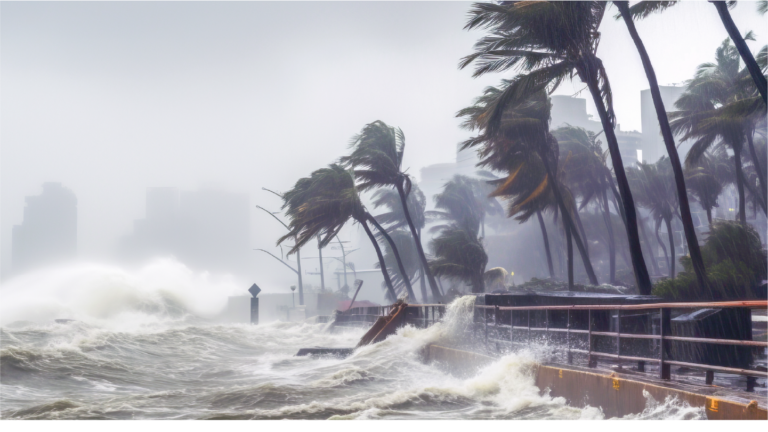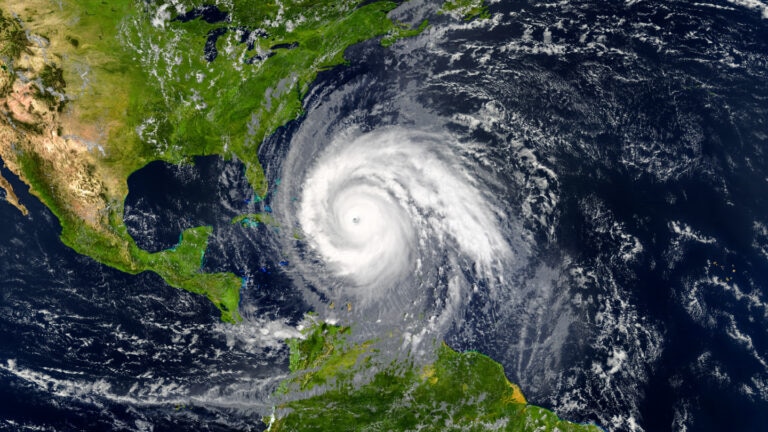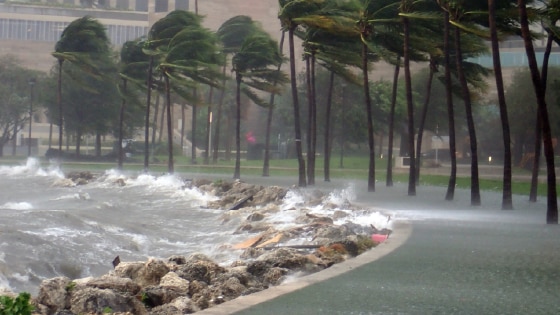
In our series on severe weather events, we’ve taken a hard look at how an increase in extreme weather is impacting property claims, casualty risks, environmental cleanup, and more. The reality is that as we face the repercussions of climate change, evaluating and mitigating risk is becoming more complex. It’s no longer enough to respond to severe weather—organizations need to plan way ahead in order to ensure business continuity.
In the face of increasingly extreme weather conditions, how can your company move from reactive to proactive? In our final piece in this series, we’re sharing three steps to help your organization stay ahead of the storm.
1. Analyze local climate data.
Preparing your business for severe weather starts with analyzing and understanding the data. Leverage climate change projections, weather analysis, and other kinds of predictive data analytics to develop a continuity plan that makes sense for your site (more on this in step 3). For example, the U.S. government and the state of California maintain a comprehensive database on annual wildfire losses. On a regular basis, California-based businesses should analyze this data and similar datasets to predict their likelihood of business interruption during fire season. According to Forbes, investing in this type of weather analysis is not only helpful for risk mitigation—it also helps businesses improve their supply chain efficiencies and reduce their carbon footprint. And you don’t need to pay for an in-house analyst to create these projections. There are many analytics companies that organizations can partner with to gather, interpret, and respond to climate data.
2. Partner with your insurance provider.
The best line of defense against severe weather is a strong relationship with your insurance provider. Your provider can help you use climate data from step 1 to identify the top risk areas for your business and determine the coverage you’ll need in the event of a storm. As discussed in previous articles, these risk areas are complex, but essential to ensure business continuity after an extreme weather event. In today’s increasingly volatile world, developing a solid partnership with your insurance agent and continuing to update your policy based on changes in the environment are critical.
3. Develop a business continuity plan.
Ensuring that your business survives a weather-related event means planning for what to do if the worst should occur—and that means creating a business continuity plan. The risk assessment you created with your insurance provider will cover the most likely weather events to hit your region and their potential impacts. You can use that information to write a continuity plan that factors in the potential impact of severe weather on your business, customers, employees, vendors, and partners. It should also take into consideration damage to your systems—will you be able to access your servers remotely in the event of a storm? Do you have a backup for your business-critical data? How will the storm impact your inventory and your ability to restock essential materials? Make sure you address all areas of vulnerability and include an action plan with clear goals to mitigate those risks.
Preparing for an uncertain future
Even with sophisticated weather modeling, it is impossible to know exactly what the future holds. But by staying abreast of the data at your disposal and addressing climate trends, businesses can better prepare for an uncertain future. We live in a complex, interconnected, and highly globalized world—and as severe weather events become more frequent, leaning on a strong partnership with an experienced insurance provider can be the edge you need to stay afloat through bad weather and natural disasters.
Related insights
This website is general in nature, and is provided as a courtesy to you. Information is accurate to the best of Liberty Mutual’s knowledge, but companies and individuals should not rely on it to prevent and mitigate all risks as an explanation of coverage or benefits under an insurance policy. Consult your professional advisor regarding your particular facts and circumstance. By citing external authorities or linking to other websites, Liberty Mutual is not endorsing them.



